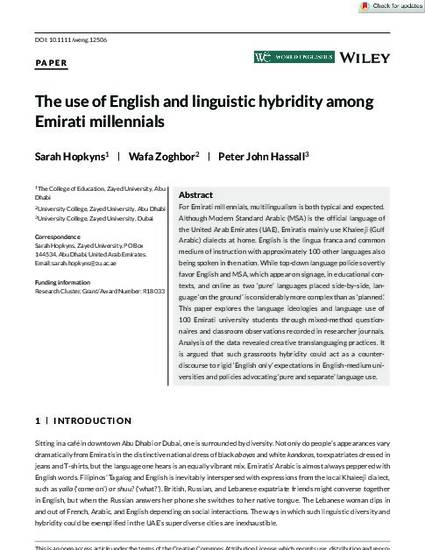
© 2020 The Authors. World Englishes published by John Wiley & Sons Ltd For Emirati millennials, multilingualism is both typical and expected. Although Modern Standard Arabic (MSA) is the official language of the United Arab Emirates (UAE), Emiratis mainly use Khaleeji (Gulf Arabic) dialects at home. English is the lingua franca and common medium of instruction with approximately 100 other languages also being spoken in the nation. While top-down language policies overtly favor English and MSA, which appear on signage, in educational contexts, and online as two ‘pure’ languages placed side-by-side, language ‘on the ground’ is considerably more complex than as ‘planned’. This paper explores the language ideologies and language use of 100 Emirati university students through mixed-method questionnaires and classroom observations recorded in researcher journals. Analysis of the data revealed creative translanguaging practices. It is argued that such grassroots hybridity could act as a counter-discourse to rigid ‘English only’ expectations in English-medium universities and policies advocating ‘pure and separate’ language use.
Available at: http://works.bepress.com/wafa-zoghbor/2/